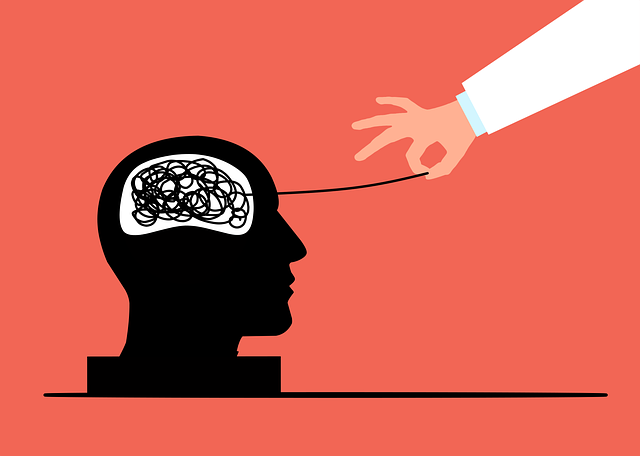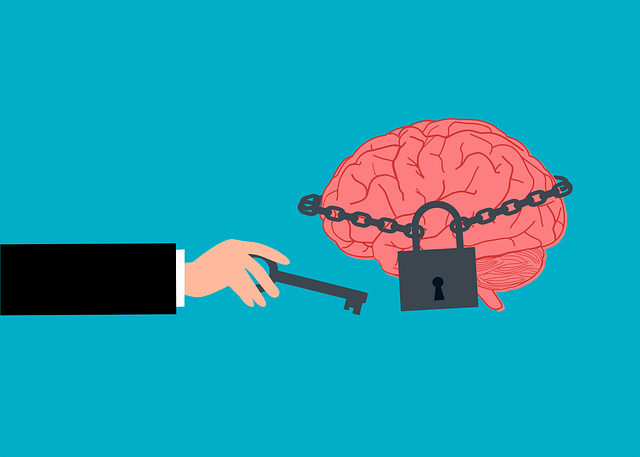Lone Tree Conduct Disorder Therapy emphasizes the impact of stress on well-being, offering workshops to equip individuals with self-care strategies and resilience for managing stress effectively. These tailored sessions, focused on specific challenges like time management or exam stress, incorporate evidence-based methods like mindfulness and role-playing. Success is measured through participant feedback, behavioral changes, and sustained improvements in emotional well-being, fostering a resilient community committed to mental health.
Stress management workshops have emerged as powerful tools for enhancing well-being, especially in today’s fast-paced world. At Lone Tree Conduct Disorder Therapy, we organize comprehensive workshops that delve into the science behind stress and its impact on mental health. Our approach focuses on practical strategies to navigate and manage stress effectively. From understanding the role of workshops in stress reduction to designing engaging sessions, we explore key aspects. Learn how these workshops can foster sustainability and provide lasting solutions for better mental health.
- Understanding Stress and its Impact on Well-being
- The Role of Workshops in Stress Management
- Designing Effective Stress Management Workshops
- Strategies for Engaging Participants and Facilitators
- Measuring Success and Sustainability Post-Workshop
Understanding Stress and its Impact on Well-being

Stress is an inevitable part of our daily lives, but understanding its impact on our overall well-being is crucial for maintaining a healthy mind and body. It’s more than just a fleeting sensation; chronic stress can lead to significant physical and emotional ailments, affecting every aspect of our lives. Lone Tree Conduct Disorder Therapy highlights the importance of recognizing these effects, as prolonged stress can disrupt sleep patterns, weaken the immune system, and contribute to anxiety and depression.
The impact extends beyond the individual, impacting relationships and overall productivity. This is where workshops on stress management become invaluable. By learning self-care routines and mind over matter principles, individuals can develop effective conflict resolution techniques, enhance their resilience, and cultivate a sense of inner peace. These tools empower people to navigate stressful situations with grace and clarity, ultimately leading to improved mental health and overall life satisfaction.
The Role of Workshops in Stress Management

Workshops play a pivotal role in effective stress management, offering structured and engaging environments to educate and empower individuals. These sessions are designed to equip participants with practical tools and strategies to cope with stressful situations, fostering resilience and emotional well-being. In the context of Lone Tree Conduct Disorder Therapy, workshops can be tailored to address specific challenges faced by individuals dealing with conduct disorders, providing a safe space for learning and growth.
Beyond individual benefits, workshops contribute to broader mental health initiatives, especially when geared towards healthcare professionals. Topics such as Risk Management Planning for Mental Health Professionals or Healthcare Provider Cultural Competency Training can be explored, enhancing their ability to manage stress within demanding work environments. Additionally, these gatherings encourage a sense of community and peer support, where participants share experiences, exchange ideas, and build confidence in managing stress effectively, ultimately contributing to improved mental health outcomes.
Designing Effective Stress Management Workshops

Effective stress management workshops require a thoughtful design process that caters to diverse learning needs. The first step is to assess the target audience’s specific challenges and goals. For instance, workshops tailored for corporate employees might focus on time management and work-life balance, while those aimed at students could address exam stress and study skills. Incorporating interactive activities, case studies, and role-plays can enhance engagement and knowledge retention.
Incorporating evidence-based Stress Reduction Methods and Communication Strategies is essential. Techniques such as mindfulness meditation, deep breathing exercises, and progressive muscle relaxation can be taught to help participants manage their responses to stressful situations. Additionally, fostering open communication through group discussions and feedback sessions allows for the sharing of coping strategies and provides a supportive environment. Lone Tree Conduct Disorder Therapy principles can guide the creation of a safe space where participants feel empowered to learn and implement effective stress management tools.
Strategies for Engaging Participants and Facilitators

Engaging participants and facilitators is paramount for successful stress management workshops. To captivate attendees, workshops should incorporate interactive Lone Tree Conduct Disorder Therapy techniques that promote active learning. This could include group discussions, role-playing scenarios, and Crisis Intervention Guidance exercises designed to foster real-time problem-solving skills. Encouraging open communication and peer-to-peer support helps create a safe, collaborative environment where participants feel comfortable sharing their experiences.
Effective Self-Awareness Exercises and Empathy Building Strategies are instrumental in empowering both facilitators and participants. Facilitators should model active listening, non-judgmental attitudes, and empathetic responses to cultivate trust and openness. By engaging participants in exercises that enhance self-reflection and emotional intelligence, workshops can help individuals better understand their stress triggers, develop coping mechanisms, and build stronger interpersonal connections.
Measuring Success and Sustainability Post-Workshop

Measuring success and sustainability post-workshop is a crucial step in evaluating the effectiveness of stress management programs like Lone Tree Conduct Disorder Therapy. By assessing participant feedback, tracking behavioral changes, and monitoring emotional well-being promotion techniques, organizers can gauge the long-term impact of the initiative. This involves collecting qualitative and quantitative data through surveys, interviews, and observer notes to understand how participants are implementing learned conflict resolution techniques in their daily lives.
Sustainability is ensured when Mental Health Education Programs Design incorporate practical strategies that are easy to integrate into everyday routines. Workshops that blend interactive activities, group discussions, and personalized action plans have shown higher rates of adoption and continued use of emotional well-being promotion techniques. Regular follow-ups and ongoing support also play a vital role in keeping participants engaged and committed to their mental health journey, fostering a culture of resilience and self-care within the community.
Stress management workshops, designed and facilitated effectively, can be powerful tools in promoting well-being. By understanding stress, its impact, and employing engaging strategies, organizations like Lone Tree Conduct Disorder Therapy can empower individuals to navigate life’s challenges. Through measured success and sustainability post-workshop, these sessions become valuable investments in personal growth and resilience.











